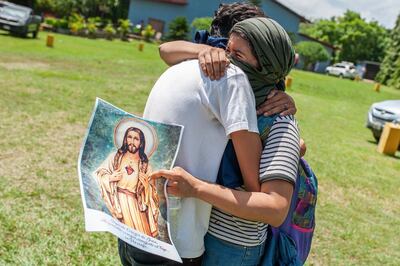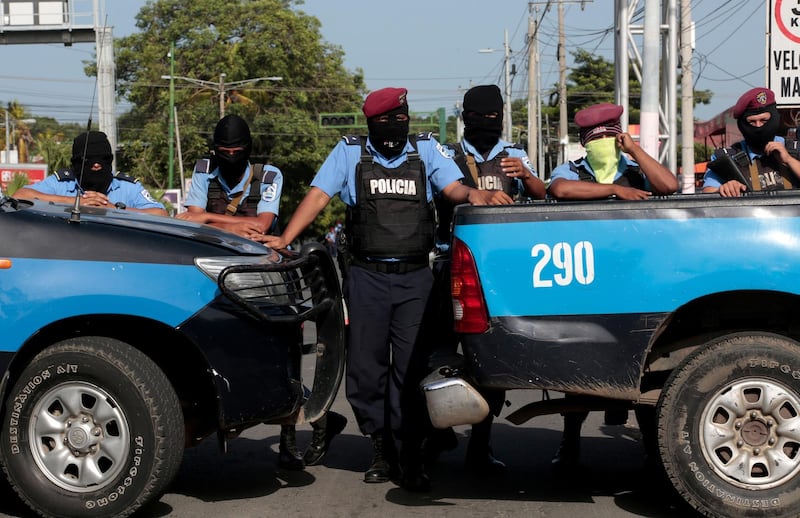Government forces in Nicaragua shot dead two young men at a protest site at a church, the clergy said, the latest violence to hit the Central American country that has convulsed with political unrest for three months.
The attack took place on the third day of nationwide demonstrations against President Daniel Ortega, a former revolutionary hero now accused of authoritarianism.
Political tensions have soared since protests against a now-aborted pension reform began on April 18 and spiraled into general opposition to Mr Ortega and his government, with at least 270 killed in clashes.
"They were shooting to kill," one young protester told reporters at the Managua Cathedral on Saturday, where students were taken after fleeing the besieged parish church. "It was very hard. They had high-caliber weapons and we had only (homemade) mortars."
"Bullets were whistling over our heads... They even tried to burn the church with people inside," a student who used the nom de guerre El Negro said.
__________
Read more:
Anti-government protests in Nicaragua - in pictures
Ortega cancels reforms after 24 reportedly die in Nicaragua protests
__________
In Managua, hundreds of demonstrators took to the streets demanding justice and early elections.
"Ortega wants us down on our knees. But he has not realised that this already has gone so much farther than any amount of fear we could have," said activist Azahalea Solis.
The latest events followed a general strike on Friday and a peaceful procession by thousands on Thursday.
"They are telling us that we have two dead and several wounded," Cardinal Leopoldo Brenes said upon reaching the besieged parish with Vatican envoy Stanislaw Waldemar Sommertag.
"This hurts us a lot," he added.
The events brought widespread condemnation and calls for an end to the violence, including from the secretary-general of the Organisation of American States, the United Nations High Commissioner for Human Rights, and officials of the US, Brazil and Chile.
After a night of gunfire and fear at the church compound, the religious leaders mediated the release of dozens of students.
Waving Nicaraguan flags and with their fists raised, the freed students passed hundreds of supporters cheering on the road as motorists honked horns.
"Long live the students!" they shouted.
Church leaders reported about 20 people wounded.
The Episcopal Conference of Nicaragua later issued a statement accusing the government of being insincere in its stated desire to hold dialogue as a means of achieving a resolution.

The students had been encamped at the parish since Friday and came under attack late that night following an assault on the National Autonomous University of Nicaragua next door, a bastion of resistance.
Students have been holed up at the university since the protests began, and a medic reported several injuries after pro-government forces opened fire.
Also on Saturday, an opposition leader accused government forces of attacking protesting civilians in the central rural municipality of San Pedro de Lovago after they had tried to block a road.
Nicaraguan forces on Friday also attacked a neighbourhood in the opposition bastion of Masaya, killing two, as Mr Ortega called for peace.
He and his supporters began a procession from the capital to the opposition stronghold, 30 kilometers south. One of the dead on Friday was a policeman, a local rights group representative said.
The rally celebrated the June 1979 "retreat" that saw thousands of guerrillas withdraw from Managua to Masaya to regroup, before securing victory that July when the dictator Anastasio Somoza fled Nicaragua.
But where he was once hunkered down with allies in Masaya fighting against a dictatorship, the 72-year-old head of state is now the one despised in the rebel heartland.
In Masaya, Mr Ortega accused the opposition of acting "with venom and hate," and appealed for a return to "the road of peace."
The opposition is demanding either early elections or the resignation of President Ortega and his wife, Vice President Rosario Murillo, accusing them of corruption and despotism.






